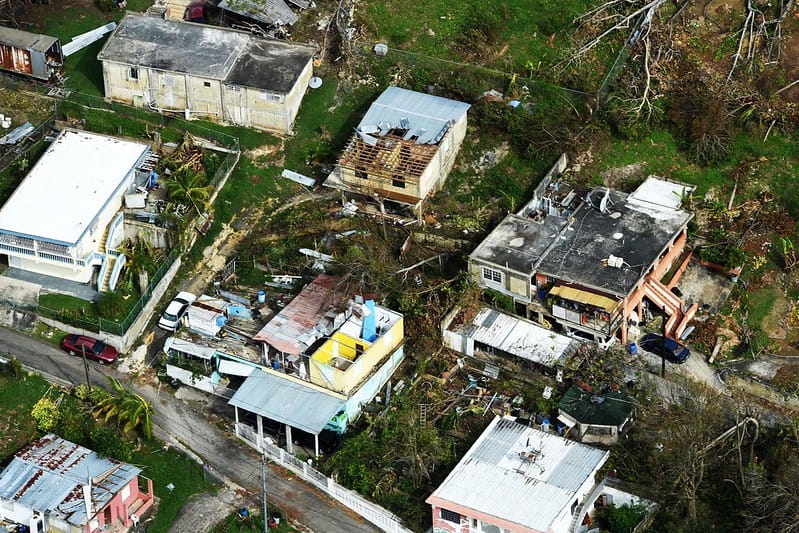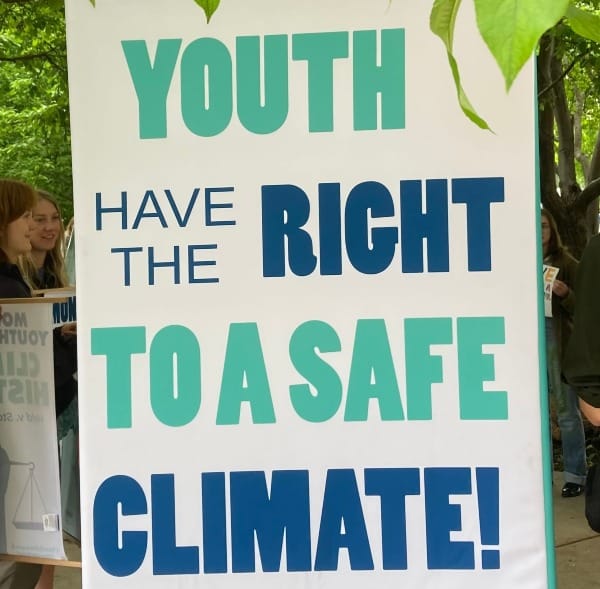Puerto Rican Communities Can Proceed With Federal RICO Claims Against Big Oil In Climate Deception Suit, Judge Rules

The magistrate judge’s decision sustaining federal racketeering and antitrust claims puts the case on track for trial.
A major class action climate lawsuit brought by Puerto Rican municipalities against some of the world’s largest fossil fuel companies is a step closer to reaching trial after a federal magistrate judge ruled that some of the claims – including ones brought under the Racketeer Influenced and Corrupt Organizations (RICO) Act – should not be dismissed.
The February 20 filing from US Magistrate Judge Hector Ramos-Vega recommends that a narrower version of the case based upon racketeering and antitrust claims be allowed to proceed. The municipalities had asserted more than a dozen causes of action under federal and Puerto Rican law such as common law consumer fraud and conspiracy, misleading practices and advertising, public and private nuisance, failure to warn and design defect, unjust enrichment, and violations of racketeering and antitrust laws. Ramos-Vega recommended that most of the claims be dismissed, though not ones pertaining to racketeering and antitrust violations. This lawsuit is the first one of its kind to target the fossil fuel industry with federal racketeering charges under the RICO Act, which was originally used to prosecute mob bosses.
The plaintiffs – 37 municipalities on the island of Puerto Rico, representing a class of all of the island’s municipalities – seek to hold large fossil fuel entities liable for damages stemming from Hurricanes Irma and Maria that decimated the island in 2017. Climate change supercharged the storms, and plaintiffs contend that fossil fuel firms engaged in a decades-long campaign to deceive the public about the reality and risks of climate change in order to continue profiting from their products that are the primary drivers of climate breakdown.
Big Oil companies “misrepresented the dangers of the carbon-based products which they marketed and sold despite their early awareness of the devastation they would cause” and they used this early knowledge to “implement protective strategies to maintain their economic monopoly of the world’s energy supply [and] thwart alternative energy development,” the municipalities argue in their initial complaint, filed in November 2022 in the US District Court for the District of Puerto Rico.
Defendants include major oil and gas companies ExxonMobil, Chevron, Shell, BP, ConocoPhillips, Occidental Petroleum, and Motiva Enterprises, along with the American Petroleum Institute (API), as well as mining companies BHP Group and Rio Tinto.
After filing multiple motions to dismiss the case, including for lack of personal jurisdiction and failure to state a claim, the court referred the dismissal matter to the magistrate judge to make recommendations.
On the jurisdiction question, Ramos-Vega determined that the plaintiffs could assert jurisdiction over the defendants, since the companies do market and sell their products in Puerto Rico. He further suggested that some limited discovery could help clarify issues around jurisdiction.
Turning to the substantive claims in the case, Ramos-Vega suggested the racketeering claims could advance and that discovery regarding these claims would be warranted. He rejected defendants’ arguments that their allegedly misleading statements are protected speech, writing: “Fraudulent statements are not protected by the First Amendment.”
Ramos-Vega also said that plaintiffs’ antitrust claims, alleging defendants blocked alternative energy development, could move forward at this time. And while he recommended that other claims under Puerto Rico (state) law be dismissed, he disagreed with one of the grounds for dismissal offered by defendants – that the state law claims are preempted by federal law. “The Puerto Rico law-based allegations in this case cannot be read as claims to regulate greenhouse gas emissions,” he wrote, adding that “the culprit is Defendants’ words, not their emissions.”
It will now be up to the presiding judge in the case to decide whether to adopt the magistrate judge’s recommendations. The parties have 14 days to raise specific objections to any of the recommendations. Should the recommendations be accepted, the case will then advance to pre-trial discovery.
According to Milberg Coleman Bryson Phillips Grossman, PLLC – the law firm representing the municipal plaintiffs – Ramos-Vega’s ruling suggesting some of the claims be sustained “marks a monumental leap forward in climate litigation, placing some of the world's largest fossil fuel companies on track to face trial for their role in deliberately misleading the public about climate change while suppressing clean energy alternatives.”
The firm said it is “disappointed” that the judge decided the other claims should be dismissed. The firm added that it would “respond accordingly,” suggesting it may object to those parts of the ruling.
Climate in the Courts reached out to several of the defendants. API, ExxonMobil, Chevron, and Shell did not immediately respond to a request for comment.
Marc Grossman, senior partner at Milberg, said his team is “eager to begin the discovery process” and is pleased that the case is moving forward.
“By sustaining our racketeering and antitrust claims, this case will be ground zero for holding the participants in this racketeering enterprise accountable,” Grossman said. “It is time for those who built this empire of deception to answer for their actions in a court of law.”


